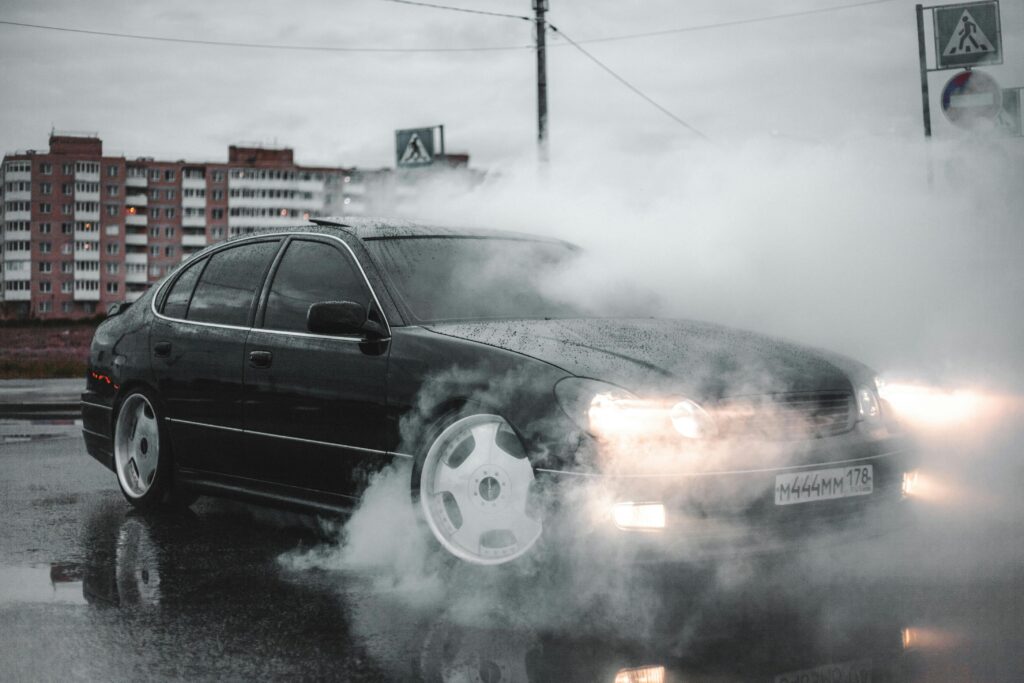Summer is here, and while the warm weather is great for vacations and road trips, it can take a toll on your vehicle. High temperatures put extra stress on your car’s cooling system, which can lead to overheating. An overheated engine isn’t just an inconvenience—it can cause significant damage and lead to costly repairs. Let’s dive into what causes engine overheating, how to handle it when it happens, and how to prevent it from occurring in the first place.

What Causes a Car to Overheat?
Several factors can contribute to engine overheating. Understanding these causes can help you take preventive measures:
- Low Coolant Levels: Coolant helps regulate the engine temperature. If the level is low, the engine can quickly overheat.
- Cooling System Leaks: Leaks in the radiator, hoses, or water pump can reduce coolant levels, leading to overheating.
- Malfunctioning Thermostat: A faulty thermostat may prevent coolant from circulating properly.
- Broken Water Pump: The water pump is responsible for circulating coolant throughout the engine. If it fails, the engine can overheat rapidly.
- Clogged Radiator: Dirt and debris can clog the radiator, reducing its ability to dissipate heat.
- Failed Radiator Fan: The radiator fan helps cool the engine when the car is not moving. If it’s not functioning, the engine may overheat in traffic.
How to Handle an Overheating Engine
If you notice your temperature gauge climbing or see steam coming from under the hood, take these steps immediately:
- Turn Off the Air Conditioning: Reducing the load on the engine can help lower its temperature.
- Turn On the Heater: This may sound counterintuitive, but turning on the heater can help draw heat away from the engine.
- Pull Over and Turn Off the Engine: Find a safe place to pull over and turn off the engine. Allow it to cool for at least 30 minutes before opening the hood.
- Check Coolant Levels: If you have coolant on hand and the engine has cooled down, carefully add coolant to the reservoir. Be cautious when opening the radiator cap, as hot coolant can cause burns.
- Call for Assistance: If you can’t resolve the issue, call a tow truck to take your vehicle to a mechanic.
Dangers of Driving with an Overheated Engine
Continuing to drive with an overheating engine can lead to severe damage, such as:
- Blown Head Gasket: Repairing a blown head gasket can be expensive.
- Warped or Cracked Engine Block: This is a serious issue that may require engine replacement.
- Seized Engine: In extreme cases, the engine can seize, rendering the vehicle inoperable.
Preventing Engine Overheating
Preventive maintenance is key to keeping your car’s engine cool and avoiding costly repairs. Here are some tips:
1. Regularly Check Coolant Levels
Ensure your car always has the right amount of coolant. Use the correct coolant-to-water ratio as specified in your owner’s manual.
2. Inspect for Leaks
Regularly check for leaks in the cooling system. If you notice puddles of coolant under your car, have it inspected by a mechanic.
3. Keep the Radiator Clean
Ensure the radiator is free from dirt, bugs, and debris that can block airflow. You can clean it with a soft brush or by gently spraying it with water.
4. Replace the Thermostat and Water Pump as Needed
These components wear out over time. Replacing them at the recommended intervals can prevent unexpected failures.
5. Monitor the Temperature Gauge
Keep an eye on your car’s temperature gauge while driving. If it starts to rise, take action before it overheats.
6. Carry an Emergency Kit
Include coolant, distilled water, and basic tools in your car’s emergency kit. These can be lifesavers in case of a sudden overheating issue.
Understanding Car Depreciation: How to Minimize Value Loss and Maximize Resale
How to Find the Best Used Car Deals in Your Area.
Final Thoughts
An overheated engine can ruin your day and your wallet if not handled properly. By understanding the causes of engine overheating and following these preventive tips, you can keep your car running smoothly all summer long. Regular maintenance and being prepared for emergencies are your best defenses against overheating.
Stay cool on the road, and don’t let engine overheating put a damper on your summer plans!
Disclaimer
This article is for informational purposes only. Always consult a certified mechanic or automotive professional for specific issues related to your vehicle. The author and publisher are not responsible for any damages or issues that arise from following the advice in this article.
